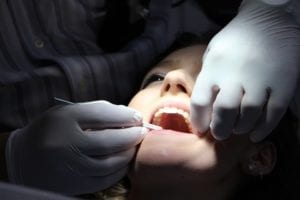 Wisdom Teeth or “eights” – is the colloquial name of our last molars. The last ones not only because they occupy the jaws and jaws of the most distant places, at the corners of the cheeks, but also because they erupt at the very end, when we already have almost a full set of teeth.
Wisdom Teeth or “eights” – is the colloquial name of our last molars. The last ones not only because they occupy the jaws and jaws of the most distant places, at the corners of the cheeks, but also because they erupt at the very end, when we already have almost a full set of teeth.
With wisdom as such, these teeth do not have much in common – their name comes from the fact that they erupt when a man enters adulthood, and therefore, at least in theory, he should already have some knowledge or life wisdom to possess. The process of “adult teething” may last for a long time, most often it happens between the ages of 17 and 21, however, sometimes wisdom teeth grow up to forty.
Why do we need such a tooth?
Wisdom Teeth- so called “Eight”, that is, the eighth in the teeth teeth and jaws, are among the molars. According to the plan of Mother Nature, we need to crush and chew the food. In the old days it had a solid justification: man, as an omnivore, needed strong “tools” to deal with hard, raw or barely cooked meat, later with ground-beef cakes and the like. Civilization, however, enforces evolution, our food is more and more soft as the centuries pass, we do not put today in the exact chewing of so much energy and strength as our medieval ancestors. But not only the change in the way of eating has brought with it – more and more often – the disappearance of the teeth of wisdom. As the millennia passed, the structure of the human skull also changed, the jaw dropped, and the cerebral part increased. Today, it is impossible to say whether it was due to decreasing jaws that the human brain could grow, or maybe the opposite, enough that modern homo sapiens is certainly a “thinker” rather than a “ruminant”. Teeth of wisdom are slowly becoming indispensable, and hence some people do not grow up at all. Statistics show that even one third of humanity happily survives without the suffering associated with the rise of these molars, and consequently – and without them alone.
Same trouble?
Should we worry that the wisdom teeth are no longer needed? After all, we have all the worries with them. It should start with the fact that the process of their eruption is very unpleasant and painful. A fairly large tooth must break through the gum, which provokes inflammation, or at least irritation. Often you can not go without strong painkillers, and let us remind you that this situation may last a few or even more than ten years, giving way to retreat and coming back. Sometimes these teeth grow at the wrong angle, additionally hurting the gums and cheeks. Wisdom Teeth are also the most exposed to decay, and this is due to their difficult location at the cheeks’ corners. It is not easy to get there with a toothbrush and clean these nooks and crannies after meals or snacks, and it is there that most of the food remains “hide” before hygienic procedures. Also the treatment of “eights” is not easy and pleasant, neither for the dentist nor for the patient. Not so long ago many dentists thought that the wisdom teeth should be removed, due to their low usefulness and many problems they create. Nowadays, this type of practice departs, and the last molars are eliminated when they grow very crookedly, interfere or do not cut themselves off completely.
Picture Credit: rgerber






